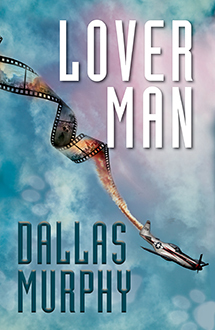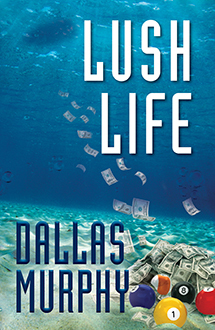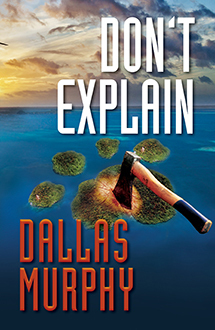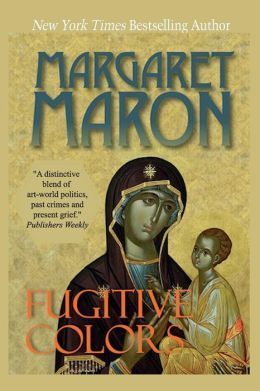Ed Gorman's Blog, page 76
September 3, 2014
weds headlines that shouldn't be true but are
VANISH: Police Dept Loses Military Humvee...
Indiana cop admits to raping woman during Labor Day drunken driving
arrest
Columbia Student Will Carry a Mattress Everywhere Until Her Alleged
Rapist Is Expelled
Rafael Cruz: The ‘average Black’ doesn’t understand why the minimum
wage is bad
(Gee I wonder how his son Ted turned out to be such a racist)
CeeLo Green defends alleged drink-spiking: It’s only ‘really’ rape when
she’s conscious
Fox News panel: Rape victims need to take ‘personal responsibility’ for
drinking too much
Illinois GOPer admits $100,000 wine club fee as Dem opponent tries to
live on minimum wage
TN pastor vows not to ‘repent’ for homophobia: God says gays ‘must be
put to death’
LISTEN: Koch executive warns minimum wage hike would lead US toward
fascism
Top Koch Strategist Argues The Minimum Wage Leads Directly To Fascism
Fox News guest: Feminists aren’t being ‘what God designed them to be’
Two California Superior Court judges censured for using their chambers
for sex
Appeals court upholds Indiana’s anti-union ‘right to work’ law
South Carolina teen sues DMV after being told to remove makeup
PetSmart adoption day goes horribly wrong — man may face charges for
stabbing pit bull
'Duck Dynasty' Star's Plan For ISIS: 'Convert Them Or Kill Them'
Teens on bikes rob two horse-drawn carriages in downtown St. Louis...
Elizabeth Hasselbeck: Obama said his Muslim ‘understanding’ would
prevent beheadings
(when did he say that exactly? a doc should examine her for being brain
dead)
Michigan Catholic school fires lesbian teacher after citing her
‘non-traditional’ pregnancy
(the priest-dictator who fired her had a 50% of being gay--that's not a
smear that's a fact)
Stephen Colbert: The militarization of police forces proves that ‘the
system is working’
(and you know he was serious when he said that :)
Published on September 03, 2014 12:39
September 2, 2014
4 days of headline that shouldn't be true but are
BOOM: 'Upscale' DENNY'S Opens In Manhattan...$300 Champagne Breakfast.
(omg)
Minister: US isn’t in the Bible because the Rapture will turn it into
an atheist hellhole
Woman Sentenced To Jail After Gun Went Off In Son's Backpack At School
Florida Man At 'Shoot Straight' Gun Range Wounds Himself And A Friend
Rich White Woman Gets 5 Days Community Service For Stealing $2,000
Worth Of Merchandise
(think of how many YEARS she would serve if she was of color and/or
poor)
Female journos fight back as Kirsten Gillibrand is derided over Senate
sex harassment claims
Louie Gohmert: ‘We Have Barney Fife Running Our Foreign Policy’
(the dumbest ugliest pol in america with iowa's steve king a CLOSE
second but we have to blame the people who vote for them)
Brawl Breaks Out At Wedding After Groom Hits On Pregnant Employee
During Reception...
Peter King Attacks Obama For Wearing Tan Suit During Press Briefing
Mass. mayor: Public schools forced to enroll immigrants with ‘more
wrinkles than I have’
SURVEY: Only half of women can locate vagina on diagram...
FBI produces 'news' radio program...
Companies Marketing Cellphones For 5-Year-Olds...
Minnesota man will file civil rights suit against cops who Tased him
for not identifying himself
(cops over react but you are a dumb ass)
FL mayor badgers atheist at public meeting for not standing for prayer
or Pledge of Allegiance
Iowa professor to protest ‘sissy’ pink visitors’ locker room by holding
‘Million Robot March’
Tea Party gadfly claims his lawsuit against Hamas proves Obama is a
secret Muslim
WA prosecutor investigated for sending wanted felon bikini pics,
helping him elude police
After Ferguson, UN says police brutality against US minorities ‘an
ongoing issue of concern’
Rick Santorum’s plan to destroy Hollywood: Turn churches into movie
theaters
MO company offering adorable ladies pocket shotguns
Neuroscientists say it’s possible to overwrite bad memories
Emotions connected to memories can be rewritten, making bad events in
the past seem better…
‘The next battlefront’: Google unveils airborne delivery drone
prototypes
‘
Devil worshipers confident satanic black mass will go on...
(thank God)
Man claims to be 'Dark Lord', burns Bible outside mission...
WATER WHISPERER: TEEN TRAINS FISH TO DO TRICKS...
Motorcyclist Brags to Cops He Hit 185 Mph in Chase
Dog Turns on Stove, Which Then Sets Laptop Ablaze
Slice of Princess Diana's Wedding Cake Auctioned
(remember elaine on seinfeld eating very old cake?)
1K-Pound Alligator Caught in Alabama Sets World Record
3rd Tourist Cited for Flying Drone in Yellowstone
Museum to Display 6,500-Year-Old Human Skeleton
Mystery of Death Valley's Moving Rocks Solved
Human Skull Donated to Goodwill Store in Texas
Penn. man sentenced for suffocating girlfriend after failing to kill
her in 115 mph car crash
Texas Border Patrol agent fires at armed militia member while chasing
border crossers
WATCH: Bounty hunter attacks woman with Taser as her family arrives
home from church
Elderly couple and their two disabled adult children found shot to
death in Chicago suburb
Washington conservative think tank to boycott Labor Day by working
Monday
("think" tank? this is thinking?)
Published on September 02, 2014 19:18
Pro-File Dallas Murphy



Here are Dallas Murphy's answers about his bestselling Artie Deemer books...being republished this month by Brash Books.
Tell us about your books coming from Brash: Brash Books is publishing my three-book series ( Lover Man , Lush Life, Don’t Explain) narrated by reluctant sleuth Artie Deemer. Artie would just as soon sit around his Manhattan apartment listening to jazz and maybe smoke a little pot. He’s able to do so because his dog Jellyroll makes a fortune in dog-food commercials and bad mystery movies featuring “the cutest dog in the world” (nobody cares about the humans). But when, in Lover Man , his ex-girlfriend, Billie Burke, is found murdered in her bathtub, he gets up, turns off the music, and goes out to track down her killer. In fact, he becomes obsessed with the search, fully aware of the danger to himself and his dog….And just who was this Billie Burke he professed so to know and to love? In Lush Life, Artie falls in love with Crystal Spivey, a professional pool player from Sheepshead Bay, Brooklyn. All is well, even blissful, until Chrystal’s ex-husband, Trammel Weems, appears in New York. Weems, an inveterate crook who happens to be an ex-friend of Artie’s, barely escaped prosecution in Miami—the fix was in—when authorities discovered that his bank was devoted entirely to money laundering for any crook with the cash. Is he back in business? But when Weems appears to have drowned in a boating accident (no body recovered), his associates—Mafia bigwigs, financial scammers, a “dead” CIA operative, and a psychopath or two—mobilize to recover a piece of incriminating evidence that Weems might have left behind. Their paths lead straight to Artie and Crystal. “A dog stalker?” That’s the problem in Don’t Explain . Artie’s been receiving threatening notes written on bowling score sheets. Someone means to kill Jellyroll. Why? For the publicity? Artie and Crystal retreat from New York to a friend’s cabin on an isolated island off the Maine coast. It seems a perfect place, the light, the sea and woods, evoking sweet eroticism. But it’s not far enough. The stalker lurks in the fog. Not only that, when Jellyroll finds a skeleton half-buried near the cabin, it becomes increasingly clear that something weird and murderous has happened on the island. And it’s not over yet. What am I working on now? I have an avocation—well maybe more important to me than that—as a science-outreach writer. I’ve been going to sea annually, mostly in the Arctic, aboard oceanographic research vessels to write about the science as it’s happening and about life aboard world-class RVs. Along with photos and videos, this work is published in the expeditions’ dedicated websites. I just returned from six weeks aboard the Coast Guard icebreaker Healy in the Chukchi Sea, arcticspring.org, if you’re interested. I usually write about 20,000 words on each of these trips for a pretty intense period that then abruptly ends….I return to New York from, say, Greenland jet-lagged and disoriented. It’s hard to get back to the novel I’m trying to write, narrated by a 17-year-old boy in 1968, who to escape the draft goes to sea with his uncle aboard a tramp steamer engaged in certain illegal activities. I’m pleased with the characters, the narrative voice, the incidents, but I haven’t discovered where it’s going. Plots are hard. I’m trying to get the ship to Greenland. As a friend said, “What’s the point of having an experience, if you don’t write about it?” What is the greatest pleasure of a writing career? I’m lucky in that I like the process. Not everyone does. Paraphrasing E.L. Doctorow, “Writing is like driving at night. You can’t see any farther than what the headlights illuminate, but you can make the entire trip that way.” I think that’s what I like—the day-to-day writing is too hard to be called an unmitigated pleasure, but that process of development, of discovery, and those delightful moments when characters do or say something you didn’t plan in advance. And of course, if you can pay the bills, there is great luxury in getting up every morning to address only your own creative problems. It’s almost too much to ask for. But then one day, like Artie Deemer, you have to get up from the desk—and put it out there in the real world from better or, uh, worse. The greatest displeasure? The tendency to up the stakes. That’s the flipside of working alone on a single thing for a long time. God, what the hell’s going to happen when I actually put it out there? Will they call me brilliant, funny, a master craftsman? A master craftsman, imagine that. Or will they say something like: “Sure, decent characters and incidents, but the plot’s a plodding bore, and we suggest the writer shift to some sensible form of employment better fitting his prosaic inclinations?” Or will they say nothing all, the resounding silence of indifference? All three are possible, sort of, but all are enemies of creative (and sane) thinking. I’ve accepted that having to fending them off is part of the territory for me. A piece of advice for the publishing world? I published my first book in 1986. That was right on the cusp of a sea change in publishing, when the old houses were being gobbled up and spit out as ticks on the balance sheets of entertainment conglomerates. (Okay, I admit that observation is a bit overcooked, but not entirely.) The old marketing model—keep a backlist, let the big-sellers support the midlist, etc.—went more or less extinct. This was also the time when publishers and agents who cooked up the big deals were becoming stars in their own right. And in those days, word was that mysteries were suddenly hot and publishers were looking hard for new writers. Publishers threw rice at the demand: if it has a murder that gets solved by, say, a one-legged blind guy who likes to fish, publish it; maybe it’ll stick. The genre fragmented into a lot of specialized niches in which, sometimes, the milieu seemed more important than the characters and story. That little era seems to have passed; there’s some fine stuff being published now, and, admittedly there was back then as well. But the hurry-up-and-sell-a-lot-of-books attitude is still with us. Sort of like the movie business—how much did you gross on the first weekend? Oh, dear, not enough, out of print. I don’t know, maybe it was always like that, and people just talked about books in more genteel language. But one thing seems clear: Brash Books is filling a niche left open by the tenets of corporate publishing—which sends books out of print after about fifteen minutes of slack sales. But then these guys, Lee and Joel, they’re writers themselves, and part of their publishing strategy is to treat their writers as they would like to be treated. That’s among the reasons I’m pleased to be published by Brash Books. Tell us about selling your first novel? Well, I’d failed to keep the stakes reasonably low. To find a publisher for Lover Man was only a matter of life and death. Wait, first I had to find a life-or-death agent. I’m grateful to have no tale of disappointment, betrayal, or even of triumph of the human spirit through perseverance over rejection. I got lucky. I knew somebody who liked the manuscript who knew somebody who knew a good agent. The agent snapped it right up, and she said she knew just the guy to publish it. She did. I was going to be a star. The agent and the publisher both said so, more than once. After Lover Man was published—to all the attention and compliments any first-time novelist could ask—they made me a nice two-book contract. Hell, maybe I would be a star, what with all those veterans saying so, and a two-book contract. Sure….Well, you know the tune. But the publishing moment I remember with unmitigated pleasure was that when the box of twenty-five brand-new books arrived and I cracked for the first time the objectification of my work (forget about the hopes, fears, and fantasies that have nothing to do with actual composition). I’ve published eight books since that first box of twenty-five, and every time the new ones arrived, I’ve reminded myself to pause and dig that moment.
Published on September 02, 2014 06:26
September 1, 2014
a fantastic harry belafonte interview discussing r ryan and "odds against tomorrow"
https://www.youtube.com/watch?v=-h0xy...
Also the damdest story I've ever heard about casting possibilities for movie version of the 'West Side Story"
Also the damdest story I've ever heard about casting possibilities for movie version of the 'West Side Story"
Published on September 01, 2014 15:13
August 31, 2014
Margaret Maron's Fugitive Colors

"Transcending genre" is in the eye of the beholder. It is also sometimes a lazy way of praising a novel that exceeds expectations. Still and all I'm tempted to to use it when discussing Margaret Maron's Fugitive Colors. It is an exceptional novel.
Lt. Sigrid Harald, Maron's NYPD homicide detective, becomes involved in an episode which leads not only to the death of a fellow officer but of her lover the renowned painter Oscar Nauman.
Shocking as these plot points are it is what Maron does with them that makes the novel so eloquent and memorable.
In most crime fiction, the world of high culture is generally treated superficially, usually as nothing more than a different and entertaining backdrop. Snobs are fun to observe and listen to. But not in this case as Sigrid Harald discovers when, after putting her police work on hold to mourn and gather herself, she is forced back to her calling as a detective.
In investigating the death of Nauman Maron takes us deep into the world of the art scene. In the course of trying to discover the truth behind his murder, Sigrid Harald is also busy with planning a retrospective of his work. Oscar left her her paintings which are worth millions. But the world of art isn't for sissies. An art dealer central to the story is found murdered.
All this would make for a fine whodunit but Maron isn't satisfied with that. There is a real sense of mordancy throughout the book.Whether it is her detective's loss of a lover or the embittered and sometimes brutal egos of everybody involved in the art world, Maron binds all her themes into the disappointments and betrayls that lurk beneath the surface of her story.
For all the style and refinement of the milieu this is a blunt force page turner.
Published on August 31, 2014 19:16
August 30, 2014
The Passing Tramp on Rex Stout

excerpt from that mighty fine blog The Passing Tramp
http://thepassingtramp.blogspot.com/2...
About Rex Stout
By that time, Stout declares in his 1971 interview, he had realized "I was a storyteller and I was not a great writer" (I believe Stout means--ahem!--A Great Writer).
Those who have what they see as higher artistic aspirations for the mystery/crime tale (that it be Great Literature), will probably find Stout disappointingly lacking in nobler aspiration here. I think this is how Julian Symons felt when, in the 1950s, he suggested that Stout should consider killing off Nero Wolfe. In Symons' view Stout, a talented writer, had been coasting too long on his corpulent sleuth's tremendous popularity.
In the 1971 interview Stout continues: "It seemed apparent to me [in the 1930s] that writers of the first rank get themselves involved in the difficulties of the people they write about. It was obvious in a paragraph the way Dostoyevsky felt about Raskolnikov, or the way Tolstoy felt about Natasha, and their feeling was of a degree that I wouldn't get."*
*(of course some crime genre theorists have urged consideration of Dostoyevsky's Crime and Punishment as a crime novel; Julian Symons once took this position himself, but later came to believe, as he states in Bloody Murder , that Dostoyevsky's works "far transcend anything the crime novelist achieves or even aims at").
Stout however urges that creating memorable characters "has nothing to do with the level of literature." Tarzan and Scarlett O'Hara are great characters, he says. He doesn't like the fiction of Bernard Malamud, Philip Roth and John Updike, because these authors are interested in problems, not people.
As for mystery/crime writers, Stout gives mixed praise to Georges Simenon("Simenon has written some damn good ones, but he's also some written some damn lousy ones") and Ross Macdonald ("a hell of a good storyteller, but I wish he'd quit telling the same story over and over again").
However, he's unequivocally higher on Josephine Tey and Dashiell Hammett (a coupling I think Julian Symons would have found rather odd):
I'd put Josephine Tey...just after Dashiell Hammett, who was the best American detective story writer not counting Poe, who started the whole thing. In The Glass Key Dash Hammett did the thing Hemingway tried to do in every book he ever wrote, and a better job of it--establishing the essential manliness of the hero by telling a story about him, what he did and what he said and how he handled a situation.
Symons enthusiastically agreed about "Dash."
Published on August 30, 2014 20:12
August 29, 2014
Jeremiah Healy, Who Created Boston Private Eye, Dies at 66

from the New York Times
Jeremiah Healy, Who Created Boston Private Eye, Dies at 66 By WILLIAM YARDLEYAUG. 28, 2014
Continue reading the main storyContinue reading the main storyShare This PageJeremiah Healy, an acclaimed mystery writer whose best-known creation, the conflicted private investigator John Francis Cuddy, was a Vietnam veteran who solved crimes and confronted sensitive political issues with compassion, wit and the occasional burst of violence, died on Aug. 14 in Pompano Beach, Fla. He was 66.His fiancée, Sandra Balzo, said Mr. Healy committed suicide and had suffered from depression for many years.Mr. Healy, a Harvard Law School graduate who began writing his books while teaching law, introduced Cuddy with the publication of his first novel, “Blunt Darts,” in 1984. He went on to write a dozen more and two short-story collections about the jaded but earnest sleuth who typically plied the waterfront and back streets of Boston. Many of the books were finalists for the Shamus Award, given by the Private Eye Writers of America, and one, “The Staked Goat” (1986), won it.John Cuddy was a former military police officer and widower who read deep into newspapers and took long, thoughtful jogs across his historic city. He killed when he needed to kill, but readers were as likely to remember his vivid observations of the people and places he knew as they were the violence.
“The morgue was built back in the ’30s,” Mr. Healy, in Cuddy’s voice, wrote in “Rescue” (1995). “It was almost new in November 1942, when the bodies from the Coconut Grove fire were taken there by the hundreds, at least as many people standing in line outside the mortuary that next Sunday morning, waiting to identify friends and loved ones. Now, though, the morgue was literally falling down on the pathologists and technicians who work inside it, gaps in the hung ceiling where the rectangles of Styrofoam have crumbled onto the examining tables and slabs.“They’ve been talking for years about moving the place out to Framingham on state-owned land that would be a cheaper site than building or renovating in Boston. Until then, the medical examiner struggles with an inadequate budget and a pared-down staff and conditions more appropriate to the end of the 19th century than the predawn hours of the 21st.”Mr. Healy explored topical issues, including assisted suicide in “Right to Die” and urban-rural divisions in “Foursome.” He wrote about date rape, racism, AIDS and homelessness.Reviewing “Shallow Graves” in The New York Times in 1992, Marilyn Stasio called the Cuddy books a “superior series” and cited Mr. Healy’s “mousetrap timing and tight plotting.”“Using fine brush strokes when he likes his subject and sharp pointillist jabs when he doesn’t,” Ms. Stasio wrote, “the author executes one of his better studies on Primo T. Zuppone, a mob enforcer whose aesthetic sensibility belies his skill at smashing kneecaps. ‘Cuddy,’ he advises the detective, ‘you got to look for the art in life.’ If Cuddy doesn’t quite get the message, we do.”Jeremiah Francis Healy III was born on May 15, 1948, in Teaneck, N.J. He graduated from Rutgers University in 1970 and from Harvard Law School in 1973. He worked in private practice for several years before joining the faculty of the New England School of Law in Boston, where he taught from 1978 to 1996.Mr. Healy wrote a few novels that were not part of the Cuddy series, and he wrote a separate three-book series, under the pseudonym Terry Devane, that featured a young lawyer, Mairead O’Clare, whose toughness was evident in high school, where she made the boys’ hockey team.In addition to Ms. Balzo, Mr. Healy’s survivors include a sister, Pat Pinches. His marriage to Bonnie M. Tisler ended in divorce.Mr. Healy, who lived in Pompano Beach, was a past president of the Private Eye Writers of America and the International Association of Crime Writers.Like some mystery writers and so-called midlist authors, he began struggling to find publishers when the industry began contracting in the late 1990s. The last Cuddy book, “Spiral,” was published in 1999 and took place mostly in Florida.Ms. Balzo, who also writes mysteries, said Mr. Healy had drafted two screenplays in recent years and was planning to revive Cuddy in a new book. Research material for it occupies seven feet of shelf space in his office, she said.
Published on August 29, 2014 20:29
Mind Prison - Kindle edition by Dave Zeltserman.
Free for Kindle for a Limited Time

thanks to bill crider for this post Mind Prison - Kindle edition by Dave Zeltserman. Mystery, Thriller & Suspense Kindle eBooks @ Amazon.com. : Do you think you'll be able to guess the shocking ending of MIND PRISON?
In this mind-bending mix of science fiction and noir, a renowned scientist, Dr. Graham Winston, is developing an ingenious and, some might say, horrifying technology that will revolutionize prison. He's close to a breakthrough, except that he finds himself distracted by his beautiful mistress... and thoughts of murder.
Posted by Bill Crider at 12:49 PM No comments: [image error]
Published on August 29, 2014 15:04
Headlines that shouldn't be true but aree
Florida pastor lashes out at atheists because he wants school prayer
‘like the Constitution says’
Teacher reprimanded for tweeting desire to stab students...
Georgia cop accused of killing woman he met online, then burning her
body
Bounty hunter attacks woman with Taser as her family arrives home from
church
Police chief defends cop in video threatening to ‘put a round in your
ass’ during traffic stop
Stephen Colbert rips Fox News for blaming media for Ferguson violence
Detroit Girl Finds Rifle, Fatally Shoots 4-Year-Old Boy
Georgia student’s family disowns and assaults him in nightmarish gay
‘intervention’ video
COPS: Teacher receives cocaine delivery at school...
Woman Discovers Her Cat Is Cheating On Her
Florida mailman calls cops on meth cooks fending off imaginary invaders
with real guns, toilet
Stephen Colbert mocks GOP for believing ISIS can be defeated with the
power of make-believe
Police altered video showing what happened before cops shot WV man 23
times: lawsuit
Notorious Serial Arsonist Is 11-Year-Old: Fire Chief
Neighbor Hellbent On Shutting Down Kid's 'Illegal' Lemonade Stand
‘like the Constitution says’
Teacher reprimanded for tweeting desire to stab students...
Georgia cop accused of killing woman he met online, then burning her
body
Bounty hunter attacks woman with Taser as her family arrives home from
church
Police chief defends cop in video threatening to ‘put a round in your
ass’ during traffic stop
Stephen Colbert rips Fox News for blaming media for Ferguson violence
Detroit Girl Finds Rifle, Fatally Shoots 4-Year-Old Boy
Georgia student’s family disowns and assaults him in nightmarish gay
‘intervention’ video
COPS: Teacher receives cocaine delivery at school...
Woman Discovers Her Cat Is Cheating On Her
Florida mailman calls cops on meth cooks fending off imaginary invaders
with real guns, toilet
Stephen Colbert mocks GOP for believing ISIS can be defeated with the
power of make-believe
Police altered video showing what happened before cops shot WV man 23
times: lawsuit
Notorious Serial Arsonist Is 11-Year-Old: Fire Chief
Neighbor Hellbent On Shutting Down Kid's 'Illegal' Lemonade Stand
Published on August 29, 2014 12:54
Fred Blosser reviews Spaghetti Westerns

The Fourth Sergio
Sergio Leone pioneered the Spaghetti Western. Sergio Corbucci and Sergio Sollima made significant contributions to the genre in Leone’s footsteps. When fans think of Spaghettis, those are the three Sergios who usually spring to mind. But there was also a fourth Sergio in the Italian West – Sergio Martino – who directed two interesting entries on his way to bigger fame in other Italian B-movie genres in the late ‘70s and the 1980s with “Slaves of the Cannibal God” and “2019: After the Fall of New York.”
Nominally, “Arizona Colt Returns” (1970) was a sequel to an earlier Spaghetti, Michele Lupo’s “Arizona Colt” from 1966, also known as “The Man from Nowhere.” Both movies were written by prolific screen scribe Ernesto Gastaldi, and both feature character actor Roberto Camardiel as comedic sidekick Double Whisky, but different actors star in the title role – Giuliano Gemma in the original, and Anthony Steffen in the sequel. Steffen does a pretty fair imitation of Clint Eastwood’s flinty stare under the lowered brim of his hat.
Bandit Keene (Aldo Sambrell) kidnaps Paloma (the sultry Rosalba Neri, hubba hubba!), the daughter of wealthy rancher Moreno (Jose Manuel Martin) and steals Moreno’s gold in the bargain. Moreno tries to hire gunslinger Arizona Colt to recover daughter and gold. Colt declines until Keene captures and nearly kills Double Whisky – and now it’s personal.
It isn’t a top-tier Spaghetti, but there’s plenty of action, which becomes non-stop in the last fifteen minutes when Colt stalks Keene and his outlaws. Like other Italian Western directors, Martino borrows a lot from Leone in his camera placements, stunt choreography, and visual gags. You may remember Camardiel’s face from other Italian Westerns: among other supporting roles, he was the cynical sheriff in “The Big Gundown” and the snide station master in “For a Few Dollars More.” Here, he delivers a lip-smacking performance that may give you a greater appreciation for the relative subtlety of Gabby Hayes and Andy Devine in similar roles in American Westerns.
There are at least three DVD editions on the market. The one I have is a widescreen Koch Media DVD edition from Germany under the title “Der Tod Sagt Amen” (which translates to “Death Says Amen,” I think, but I may well be wrong). The visual quality is pretty good if not spectacular, and although the DVD has an Italian soundtrack, there are optional English subtitles.
You may want to put your TV on mute as the title credits roll; otherwise, you’ll be doomed to have the bouncy bubble-gum title song (“I guess I gotta get … my gun. / I guess I gotta shoot … someone”) loop endlessly through your mind all day.
Martino’s second and last Spaghetti, “Mannaja – A Man Called Blade” (1977), was one of the final Italian Westerns as the genre sputtered to an end in the Disco era. I’m not even sure it had a U.S. theatrical release, at least not widely. Maurizio Merli plays the title character, a hatchet-wielding bounty hunter who rides into a ramshackle town run by mine owner McGowan (Philippe LeRoy) and McGowan’s scheming topkick, Voller (John Steiner – who looks a bit like American actor John Beck).
McGowan is a puritanical tyrant who rails against saloons and dance-hall girls while his mines pollute the valley and his workers cough out their lives from lung disease. Any commentary on the intersection between religious hypocrisy and greed is coincidental, I’m sure.
Where “Arizona Colt Returns” came from that period in which Spaghettis were still pretty much modeled on Leone’s “Dollar” movies, “Mannaja” reflects a wider range of inspirations. As critics have noted, there’s a Sam Peckinpah influence in Martino’s slow-motion scenes of violence (Sam did it better, of course), and something of Robert Altman’s “McCabe & Mrs. Miller” in the muddy, raw look of the sets and locations.
Nevertheless, among the Peckinpah and Altman touches, the echoes of the earlier Spaghettis are still evident. The relationship between Blade, Voller, and McGowan is very similar to that of the characters played by Charles Bronson, Henry Fonda, and Gabriele Ferzetti in “Once Upon a Time in the West.” A plot twist involving Blade, Voller, and McGowan’s daughter is similar to one involving Arizona Colt, Keene, and Paloma in Martino’s own earlier Spaghetti. Several familiar Spaghetti veterans appear in the cast, including Donal O’Brien and Nello Pazzafini.
Where “Arizona Colt Returns” was scored by Ennio Morricone’s frequent collaborator Bruno Nicolai, the “Mannaja” score by the DeAngelis Brothers seems to be modeled on Bob Dylan’s score for “Pat Garrett and Billy the Kid” and Leonard Cohen’s for “McCabe.” The croaking vocals and druggy instrumentation are off-putting at first, but like “Mannaja” as a whole, they grow on you after repeated viewings. I believe the excellent 2003 DVD edition from Blue Underground is still available. It’s too bad the genre didn’t survive long enough for Martino to explore it some more. A meeting between Arizona Colt and Blade would have been interesting.
Published on August 29, 2014 07:32
Ed Gorman's Blog
- Ed Gorman's profile
- 118 followers
Ed Gorman isn't a Goodreads Author
(yet),
but they
do have a blog,
so here are some recent posts imported from
their feed.



